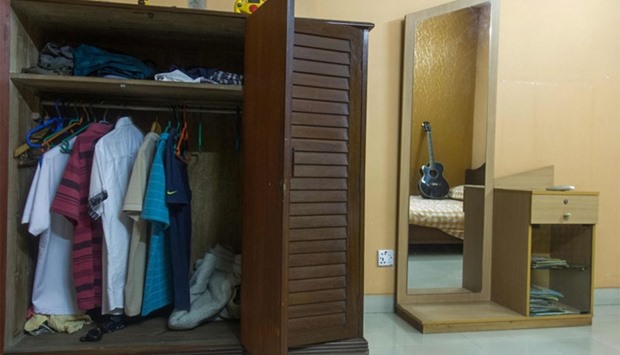Doctors, engineers and university students are among 261 people officially missing in Bangladesh, with some feared recruited by Islamic militant groups, as the country reels from a wave of deadly attacks.
More than two weeks after Islamists killed 20 foreign hostages in a siege at a cafe in Dhaka, police published a list overnight Tuesday of those missing and urged information on their whereabouts.
"We have to find them," elite Rapid Action Battalion spokesman Mufti Mahmud Khan told AFP, without saying how many were suspected to have joined extremist groups at home and abroad.
Bangladesh was spurred into launching a nationwide hunt for people reported missing by their families in recent times, following the July 1 siege claimed by Islamic State group(IS).
Police and parents said the five who stormed the Western-style cafe and hacked the hostages to death had gone missing months earlier. At least two gunmen who carried out a deadly attack days later at a massive Eid prayer service had also previously disappeared.
As the list was published on Facebook, Prime Minister Sheikh Hasina reiterated her secular government's determination to "root out the scourge of militancy".
Hasina, who has long denied IS and Al-Qaeda have a foothold in Muslim-majority Bangladesh, urged villages to form committees to gather information on those missing.
"We will find out everything -- who are patronising them (the militants), who are providing them with arms, money and other support. We will find out who are misguiding young students," she told parliament.
The list shows a diverse range of mainly young people who have fallen off the radar including some from wealthy families and with good jobs, and others at university, long thought by experts to be a recruiting ground for radicals. Local media reported on Wednesday dozens have travelled to the Middle East to join IS.
It includes Tahmid Rahman, son of a former home secretary and election commissioner, who was seen in a video, thought to have been shot overseas, and released by IS immediately after the siege praising the attackers.
"Back in 2003-4, Tahmid used to be the lead singer of an underground rock band. Then he became one of the top contestants of the (talent) reality show 'Close Up One'," said a friend who did not want to be named.
"After seeing him in the video I felt a shiver down my spine thinking of him holding a machete instead of a microphone. Before he disappeared from his home, he used to tell his fellow musicians to leave music as it is forbidden in Islam," he told AFP.
"He had a good job at a telecommunications company," he said of Rahman, whose friends think he went missing about a year ago.
- Missing ignored - Security analyst Abdur Rob said authorities have until now ignored the issue of Bangladesh's missing, adding some may have already joined IS and other groups.
"Had the authorities taken the issue of missing young men seriously, the terror attacks in Gulshan cafe and in the Eid congregation could have been avoided," said Rob, a professor at private North South University in Dhaka.
"Still it is not too late. Authorities should scrutinise the list, take help from universities to learn who are missing for what reasons and act accordingly," he told AFP.
"It may go a long way to preventing the next attack."
Hasina's government has blamed a string of recent murders of secular bloggers and religious minorities on local not overseas militant groups, along with the opposition whom it accuses of trying to destabilise the country.
But since the siege, it has launched a crackdown on social media sites, saying they are being used to recruit young men to jihadist groups.
Police said a family of five comprising a doctor, his college professor wife, their two daughters and son in-law have been missing since October.
"We're probing where they've gone," local police station chief Rafiqul Islam told AFP, while another officer told local media the family was suspected to have flown to Syria.
Another on the list, marine engineer Najibullah Ansari, had been missing for over a year when his parents contacted police after this month's national manhunt.
According to his family, Ansari was last in touch with his brother in January 2015 on Facebook, saying that he was in Iraq fighting with jihadists.
"I have come to Iraq. Tell father and mother not to worry for me. I have come here for jihad," read the message according to a screen shot seen by local daily Dhaka Tribune.
"I will never return home," he said.

This photograph taken on July 4, 2016, shows a guitar standing on a bed and clothing hanging in a wardrobe of Mir Saameh Mubasheer at his family home in Dhaka
